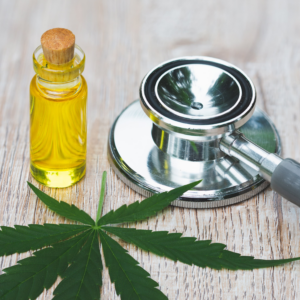Hi there!
Polymyalgia rheumatica is an autoimmune-inflammatory condition. Both CBD and THC have been shown to have immunosuppressive and anti-inflammatory properties.
In fact, a paper published by the University of South Carolina, School of Medicine, stated that "the fact that both Cannabinoid-1 (CB1) and Cannabinoid-2 (CB2) receptors have been found on immune cells suggests that cannabinoids play an important role in the regulation of the immune system." They found that when THC was administered, immune cell activity was reduced, which is to say that inflammation was reduced.
https://www.ncbi.nlm.nih.gov/pmc/articles/PMC2828614/
And while cannabis research has historically focused on THC, synthetic cannabinoids, or our own naturally occurring cannabinoids (endocannabinoids), there is an evergrowing body of research regarding the anti-inflammatory effects of CBD. In a study performed on mice with artificially induced arthritis, researchers concluded that, similar to THC, "CBD, through its combined immunosuppressive and anti-inflammatory actions, has a potent anti-arthritic effect" which may even "block the progression of arthritis."
https://www.ncbi.nlm.nih.gov/pubmed/10920191
Further, a very recently published study concluded that "topical CBD application has therapeutic potential for relief of arthritis pain-related behaviors and inflammation without evident side-effects."
https://www.ncbi.nlm.nih.gov/pmc/articles/PMC4851925/
drkim
For autoimmune-inflammatory conditions, I often recommend high CBD:lowTHC products, such as the 18:1 products by Care By Design. Higher concentrations of CBD vs THC, such as 18CBD:1THC, will lessen, or even eliminate psychoactive effects, while still providing pain relief. However, products with similar levels of CBD and THC, such as 1CBD:1THC, are more effective at treating pain and inflammation. So, for most people, it takes some trial and error before finding a compromise that provides noticeable relief, while also avoiding unwanted side effects.
Hope this helps!
drkim



